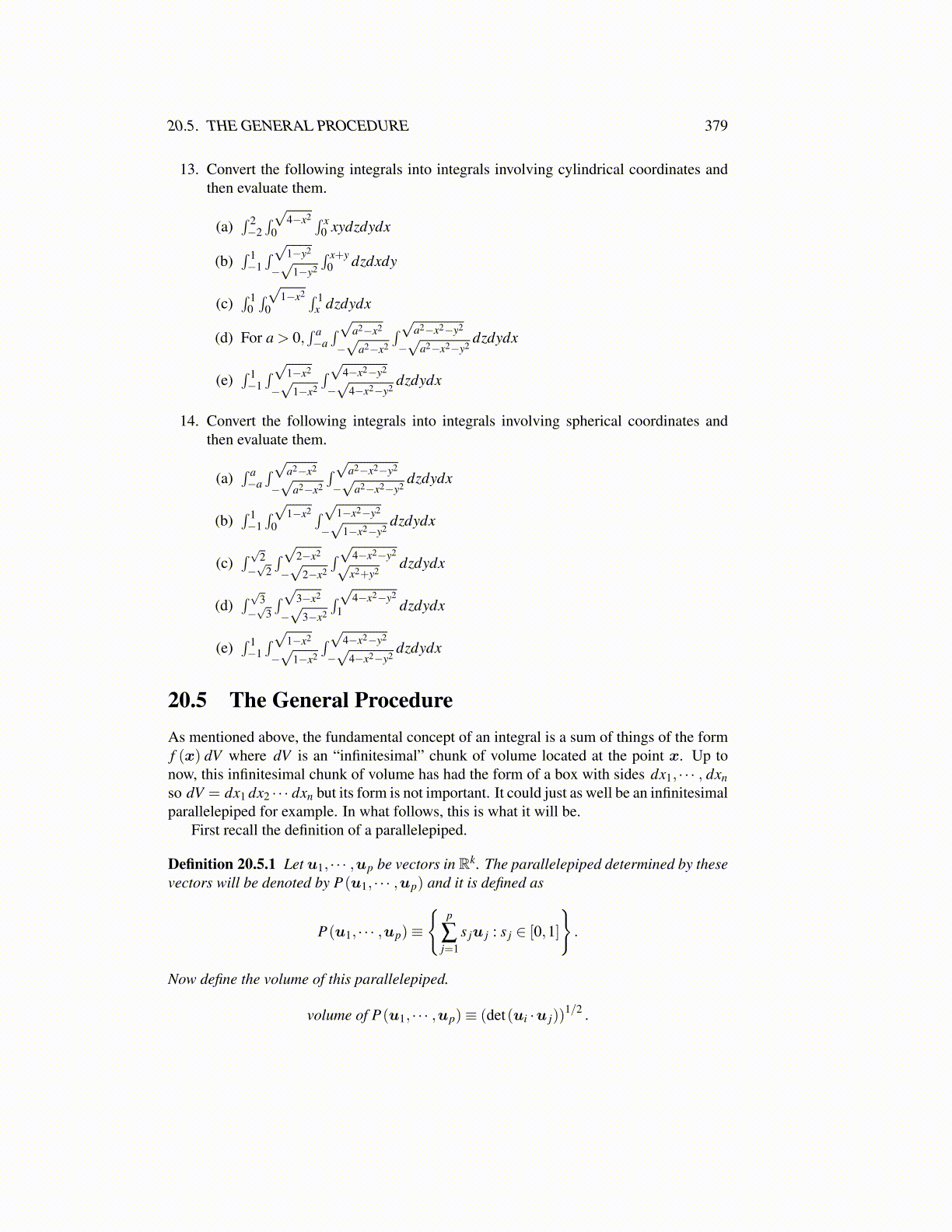
20.5. THE GENERAL PROCEDURE 379
13. Convert the following integrals into integrals involving cylindrical coordinates andthen evaluate them.
(a)∫ 2−2∫√4−x2
0∫ x
0 xydzdydx
(b)∫ 1−1∫√1−y2
−√
1−y2
∫ x+y0 dzdxdy
(c)∫ 1
0∫√1−x2
0∫ 1
x dzdydx
(d) For a > 0,∫ a−a∫√a2−x2
−√
a2−x2
∫√a2−x2−y2
−√
a2−x2−y2dzdydx
(e)∫ 1−1∫√1−x2
−√
1−x2
∫√4−x2−y2
−√
4−x2−y2dzdydx
14. Convert the following integrals into integrals involving spherical coordinates andthen evaluate them.
(a)∫ a−a∫√a2−x2
−√
a2−x2
∫√a2−x2−y2
−√
a2−x2−y2dzdydx
(b)∫ 1−1∫√1−x2
0∫√1−x2−y2
−√
1−x2−y2dzdydx
(c)∫√2−√
2
∫√2−x2
−√
2−x2
∫√4−x2−y2√x2+y2
dzdydx
(d)∫√3−√
3
∫√3−x2
−√
3−x2
∫√4−x2−y2
1 dzdydx
(e)∫ 1−1∫√1−x2
−√
1−x2
∫√4−x2−y2
−√
4−x2−y2dzdydx
20.5 The General ProcedureAs mentioned above, the fundamental concept of an integral is a sum of things of the formf (x) dV where dV is an “infinitesimal” chunk of volume located at the point x. Up tonow, this infinitesimal chunk of volume has had the form of a box with sides dx1, · · · , dxnso dV = dx1 dx2 · · · dxn but its form is not important. It could just as well be an infinitesimalparallelepiped for example. In what follows, this is what it will be.
First recall the definition of a parallelepiped.
Definition 20.5.1 Let u1, · · · ,up be vectors in Rk. The parallelepiped determined by thesevectors will be denoted by P(u1, · · · ,up) and it is defined as
P(u1, · · · ,up)≡
{p
∑j=1
s ju j : s j ∈ [0,1]
}.
Now define the volume of this parallelepiped.
volume of P(u1, · · · ,up)≡ (det(ui ·u j))1/2 .